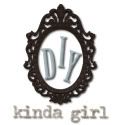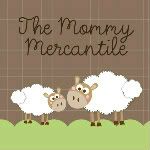Wow, sorry it's been so long since I've posted. The difficult thing about studying such a creative major is that there are limits on what I can share. For instance, I've taken two clothing production classes the last two semesters, and I'm now starting an independent sewing class, and I am not allowed to share pictures online. Privacy policy rules and all that. Most of the things I've made I've not been able to share because of this. There have been some things I've made, such as some great handwarmers I made out of rice and minky fabric for my roommates as Christmas gifts. But let's face it, I am downright awful at remembering to take pictures as I work.
So, since I really don't have anything cute to share, I thought I'd share some knowledge and resources with you.
First, over the Christmas break, I splurged and bought myself the Brother 1034 Serger. I haven't had a whole lot of practice on it, but so far I really like it! It's not that difficult to thread, the blades are very easy to lower, and the manual is very easy to follow. And for the price, it's really quite good for a first serger! My first project I made with it was a mini boppy pillow for my 6-month-old nephew. Again, apologies for the lack of photos. I did make an adjustment for this pillow: I added an inch around the seams, and added 2 inches to the middle of the pattern where the fold is, so that it would fit my nephew. He's quite the healthy little chunk!
I've realized after the sewing classes I've taken, that sewing textbooks are so nice to have on hand! I have kept all my books. I thought I'd share them with you:
Singer Complete Photo Guide to Sewing: This book is really great! It has a lot of step-by-step photos of how to do simple and more complicated sewing techniques. It is a must-have!
The New Complete Guide to Sewing: This book is a good complementary book to the Singer book. What is not covered in the Singer book is covered here, and vice versa. Again, good step-by-step instructions, especially for zipper applications, smocking, and beginning tailoring.
Unit Method of Clothing Construction: This book takes some patience to get through. There are not a whole lot of pictures to go along with each guide. Read it through carefully, and try to envision what you have to do with each step. Have a ruler, tissue paper, a pin or two, a french curve, and tape handy. It is really great for customizing patterns to fit yourself. I've used this book to widen sleeves, shorten pants, lengthen torsos, and change darts and pleats.
Principles of Flat Pattern Design: In some ways, this book is similar to the Unit Method book. This book works off of slopers, which are the absolute simplest pattern pieces. This book has you trace the slopers (some samples should be included with the book), and you use the guides in the book to adapt the sloper to the pattern pieces you want. You can change a simple sleeve to a bell sleeve, a pencil skirt to a circle skirt, and a blouse with darts to a blouse with princess lines. You can also combine a skirt and blouse sloper to create a smooth-lined dress. Definitely practice a few methods before you try to work on a big project.
Fashion A to Z: An Illustrated Dictionary: Finally, the ultimate reference to any design you otherwise would never know about. It not only includes information on designs, but also information on different fabric dyeing and printing processes, fabric types, finishing processes, seam types, types of stitches, and so much more. Basically a must-have for anyone interested in design, or becoming a bonafide fabric geek.
Of course, these are just books I've used heavily for my projects. There are many, many more out there. These are just familiar to me, so I prefer them. If you decide to purchase sewing books, be sure to read reviews or even look at them in book stores or libraries before you make your final decision.
Free Printable St. Patrick's Day Math Riddles
18 hours ago



0 comments:
Post a Comment